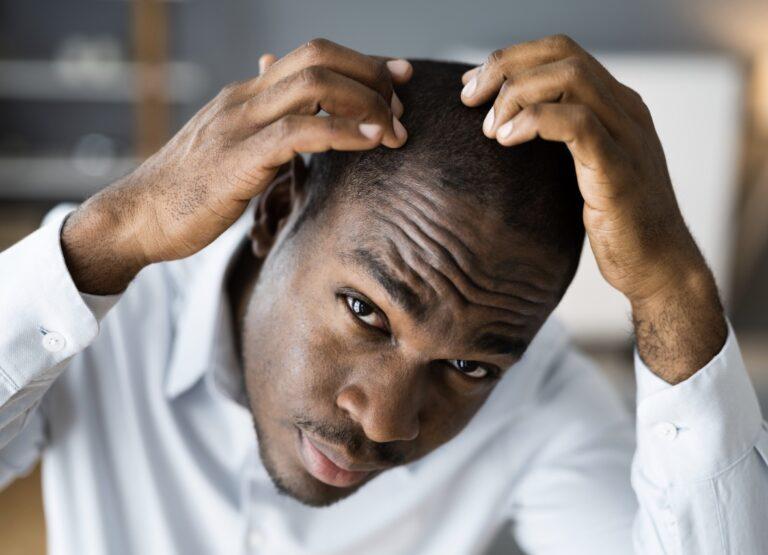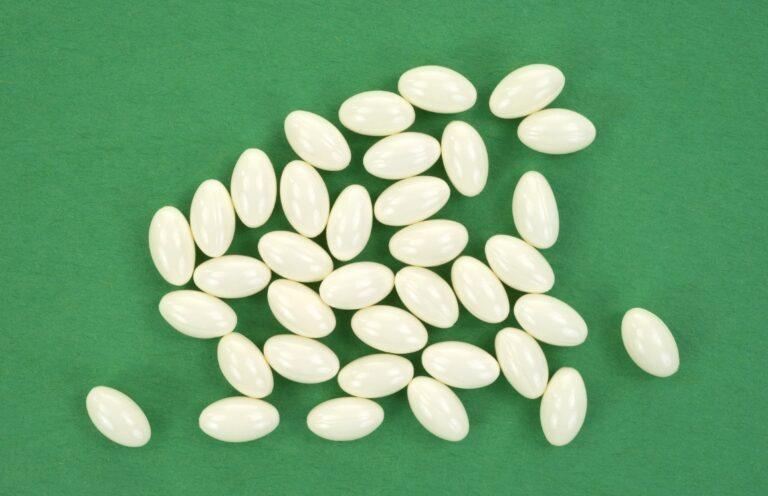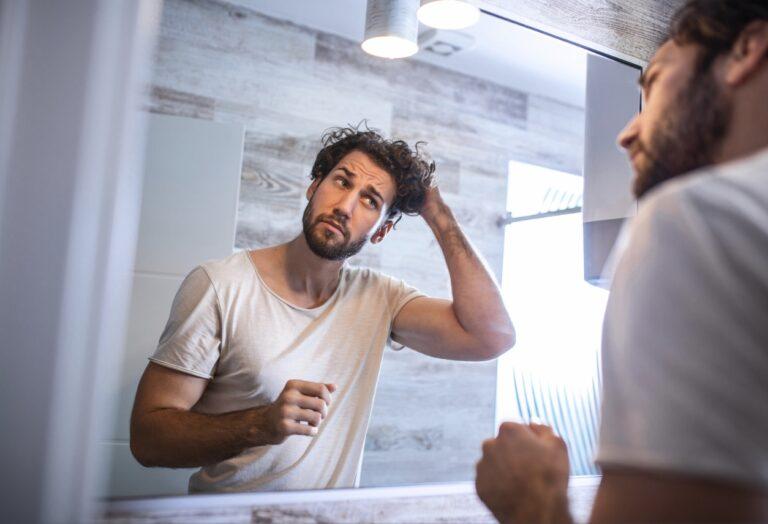Beards are hot right now. They’re in the movies, all over TV, on your friends’ faces. But not everyone is blessed with the genetics to get that true caveman style, so loads of guys are turning to a hair loss medication called minoxidil to help them out.
Sound good? We’ve got the important information on what minoxidil is, how it works, and why you might soon be putting it on your face.
The rise in men using minoxidil for beard growth in the us
Beards are officially back. They’ve been growing in popularity throughout the 2010s, they’re fashionable, and lots of men see them as a symbol of masculinity. Not all men can grow a good beard though, some men have patchy facial hair, for others, it’s even worse.
But some of these guys aren’t letting genetics hold them back. There’s a rise in men using baldness treatments, especially minoxidil, to help them grow thicker, fuller facial hair. Google ‘minoxidil beard growth’ and you’ll find thousands of websites and blogs with advice on minoxidil for beards, and then there’s all the YouTube videos, and Facebook pages like The Minox Beard Spot, full of advice and people’s experiences.
So, what is minoxidil?
Minoxidil is a medication used to treat male pattern baldness, the most common form of hair loss in men. Minoxidil is the name of the actual drug, but it’s also sold under brand names, like Rogaine.
Minoxidil is a topical treatment, which means it’s applied directly to the scalp, and it usually comes as either a liquid solution or a mousse.
How does minoxidil work?
Just like Viagra, minoxidil was a happy accident. Viagra was originally developed as a heart medication, but it turned out to have a pretty lucrative side effect. Minoxidil was the same. It was developed to treat blood pressure, but it had a pesky side effect of causing hair growth, and bang, one of the most effective baldness treatments was born.
Scientists don’t quite know how minoxidil causes hair growth though. They know it does, but not how.
The drug is an antihypertensive vasodilator, which means it widens blood vessels and changes cell membranes in the area it’s applied, boosting the flow of blood, oxygen, and nutrients into cells. It’s thought the increased supply of this good stuff to hair follicles (the structures in your skin that hairs grow out of), causes them to shed old hairs, and replace them with newer, thicker ones. Think of minoxidil as helping hair roots get more of what they need to produce thick, healthy hairs.
Is minoxidil really effective?
We can understand if you’re skeptical. There’s a long history of scam baldness cures and ineffective treatments, but minoxidil really does work. In clinical trials, men using minoxidil saw a ‘remarkable increase in hair growth and decrease in hair loss’, and minoxidil is regarded as the most effective topical treatment for baldness.
How safe is minoxidil?
Minoxidil is considered a safe drug, but like all treatments, some men can experience side effects. These tend to be relatively minor though, with skin irritation, dryness, and itching being the most common. Other side effects can include headaches and nausea.
Will minoxidil help my beard grow?
OK, first off, the disclaimer. Minoxidil was developed to treat hair loss on the head, and the FDA has only approved minoxidil for use on the scalp.
If you use minoxidil on your face, you’re taking a risk, as you’re not using the drug in the way it was developed to be used, and in the way it was tested in clinical trials. In the US, there haven’t been any trials to examine the effectiveness and safety of minoxidil when applied to other parts of the body. The skin on your face may absorb minoxidil differently from the skin on your head, meaning more of the drug could enter your blood, and this may change the risk of side effects. Right now, no one knows for sure.
Outside of the US, there has been one study so far that has looked at the effects and safety of using minoxidil for facial hair growth. Conducted in Thailand on 46 men, it did find an increase in the number of hairs on the test subjects’ faces, but no increase in the thickness of the hairs. The research didn’t reveal any serious side effects, but it was a short-term study based on less than 50 men, so it’s not a thorough clinical assessment. It’s a little premature to say minoxidil is safe and effective for facial hair, particularly for long-term use.
With what you can find online it seems plenty of guys have improved the thickness and coverage of their beards using minoxidil, at least if all the before-and-after shots can be believed. Remember that not everything on the internet is 100% truthful (shock), so don’t take everything literally, at least until there’s more scientific research.
Should I use minoxidil on my beard?
This is up to you.
We can’t and don’t recommend you put minoxidil on your face to improve your beard, as this isn’t what minoxidil was developed and tested for. If you do choose to use it this way, understand that you could be putting your health at risk.
Sources
Medical Disclaimer
NowPatient has taken all reasonable steps to ensure that all material is factually accurate, complete, and current. However, the knowledge and experience of a qualified healthcare professional should always be sought after instead of using the information on this page. Before taking any drug, you should always speak to your doctor or another qualified healthcare provider.
The information provided here about medications is subject to change and is not meant to include all uses, precautions, warnings, directions, drug interactions, allergic reactions, or negative effects. The absence of warnings or other information for a particular medication does not imply that the medication or medication combination is appropriate for all patients or for all possible purposes.








